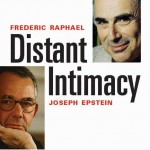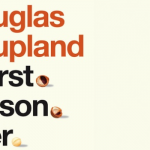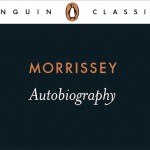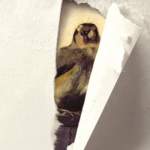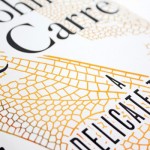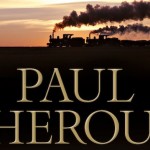Hatchet Job 2014 | Previous years | Manifesto | Press
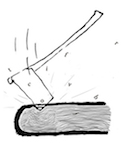
Camilla Long on Aftermath by Rachel Cusk
THE SUNDAY TIMES
The novelist Rachel Cusk has written a book about the collapse of her marriage which is, quite simply, bizarre. She starts off fairly normally, with a description of how her 10-year relationship with the photographer Adrian Clarke fell apart. She describes the effect on their two daughters, how they cry in the bath. She says her husband is furious, and “believed that I had treated him monstrously”.
She describes her grief in expert, whinnying detail, how it left her physically diminished — “thin and gaunt with distress” — and unable to sleep, a distracted, depressed mess who cleans the house “incessantly, a maternal Lady Macbeth”. She gets a lodger who goes weird; she scowls at couples kissing in the street. She is the only singleton at her mother’s 70th birthday; the thought of seeing certain friends paralyses her “with terror”. Eventually, she hires a therapist and starts going on dates. “I buy a coat,” she concludes, with characteristic chilliness, “because it’s winter now.”
The strange bit is everything else. The book is crammed with mad, flowery metaphors and hifalutin creative-writing experiments. There are hectic passages on Greek tragedy and the Christian concept of family, as well as fragments of ghost stories, references to the Anglo-Saxon heptarchy, and heavy Freudian symbolism, including a long description of the removal of a molar, “a large tooth,” she writes portentously, “of great…personal significance”. The final chapter is an out-of-body experience — her situation seen through the eyes of her pill-popping Eastern European au pair. Oddly, I read the whole thing in a Bulgarian accent.
Cusk herself seems extraordinary — a brittle little dominatrix and peerless narcissist who exploits her husband and her marriage with relish. She tramples anyone close to her, especially Clarke, whom she has forced to give up his job in order to look after the kids. She pours scorn on his “dependence” and “unwaged domesticity”, but won’t do chores herself because they make her feel, of all things, “unsexed”. She is horrified when he demands half of everything in the divorce: “They’re my children,” she snarls. “They belong to me.”
Perhaps the nastiest attack is reserved for someone outside the family: a description of a one-legged landlady who fails to provide Cusk with hot and cold running lattes on a riding holiday in Devon. She is a “witch”, writes Cusk, with “a large mounded body, a shock of grey frizzy hair, a clutch of big yellow teeth, a red leathery face grotesquely made up. The teeth are bared: she is either panting, or smiling, I can’t tell”.
I read the passage agog — a case of pure literary GBH. Is this woman real? Recognisable? Possibly going to read it? There can’t be too many one-legged witches running hostelries near Dartmoor. (Can there?) The irony is that Cusk was actually sued for a personal attack in her last book but one, when some people at a bed and breakfast in Italy recognised themselves in a description in The Last Supper.
And yet she shows no signs of retracting her claws. She rips into her latest meat with all the poison and vigour of her earliest memoir, A Life’s Work, an excoriating account of pregnancy and motherhood she wrote in 2001. She was flamed then by the critics for her self-absorption and fearlessness — and there’s plenty to get the blood circulating in this book, too. Her sheer pretension, for starters. “I surrendered to the ascetic purity of that other religion, hunger,” she moos. She is “frightened” by a flower shop; “hurt”, she writes, by the redness of buses. Her children are painfully exposed: she describes how they “are worried they are getting fat” and rejected by friends. A cake they decorate disgusts her: “a failure”, she writes.
Perhaps she really is a Clytemnestra, “an Iron Lady, a man in a woman’s body”, a queen who has killed her king? In a long passage about the Oresteia, she compares herself with the original murderous manipulatrix. Clytemnestra is misunderstood, she argues — she’s actually a radical proto-feminist, just like her. In fact, the analogy is slightly off — Cusk isn’t vengeful, just moany; Clytemnestra isn’t feminist, just crazed; and Clarke definitely isn’t Agamemnon, sacker of Troy.
I’m also slightly puzzled by her take on Sophocles’s Antigone — a digression in which she explains that she feels “a certain sympathy for Oedipus”. Apparently this play is all about her, too: the chaos Oedipus has caused at Thebes — mother-shagging, father-killing and eye-gouging — is somehow similar to her own domestic high jinks. In a section that is as garbled as it is complicated, she draws odd parallels and repeatedly gives the wrong name for Antigone’s brother. He is not Polylectes, but Polynices — a strange mistake given that she mentions, quite clearly on page 12, that she “got into Oxford”.
There are some beautiful images: Clytemnestra’s daughter is “a valuable girl laid on her altar like a cultured pearl”. Cusk’s mother is “a narrow-waisted beauty, compact as a seed”. She is great at quivering emotional detail — when she meets her brother for lunch, she hungrily scoffs the bread basket and sugar cubes like an urchin. But can a tray of vol-au-vents really be “steeped in rejection”? In Cusk’s world, even the canapes are victims. She can certainly be overdramatic — a haircut in Paris sends her into an existential frenzy: “Had a transformation occurred, or a defacement?” she witters. “It seemed terrible…not to know.” Later, the purchase of “a bohemian headdress” leads, inexplicably, to a tense stand-off with one of her daughters.
And while I know some readers will find comfort in her searing, elegaic words, and her “painfully honest” but extremely fetching dismemberment of personal despair, she leaves out too much narrative detail for me.
She never explains why she and Clarke split up, only hinting that “an important vow of obedience had been broken”, or why he comes back, later, as X. There is very little about their history, or their conversations now. Instead, we have acres of poetic whimsy and vague literary blah, a needy, neurotic mandolin solo of reflections on child sacrifice and asides about drains. She can’t remember “what drove me to destroy the life I had”, or even explain why she wrote the book. This is a pity, as confessional writing is meant to be about truth — the whole truth.
This article originally appeared in The Sunday Times on 04/03/12
Read all reviews for Aftermath by Rachel Cusk
The Omnivore on Twitter | The Omnivore on Facebook | Sign up for The Omnivore Digest

